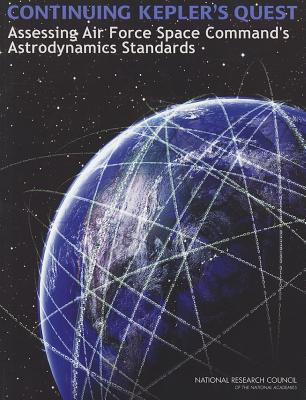In February 2009, the commercial communications satellite Iridium 33 collided with the Russian military communications satellite Cosmos 2251. The collision, which was not the first recorded between two satellites in orbit—but the most recent and alarming—produced thousands of pieces of debris, only a small percentage of which could be tracked by sensors located around the world. In early 2007, China tested a kinetic anti-satellite weapon against one of its own satellites, which also generated substantial amounts of space debris. These collisions highlighted the importance of maintaining accurate knowledge, and the associated uncertainty, of the orbit of each object in space. These data are needed to predict close approaches of space objects and to compute the probability of collision so that owners/operators can decide whether or not to make a collision avoidance maneuver by a spacecraft with such capability. The space object catalog currently contains more than 20,000 objects, and when the planned space fence radar becomes operational this number is expected to exceed 100,000. A key task is to determine if objects might come closer to each other, an event known as "conjunction," and the probability that they might collide. The U.S. Air Force is the primary U.S. government organization tasked with maintaining the space object catalog and data on all space objects. This is a complicated task, involving collecting data from a multitude of different sensors-many of which were not specifically designed to track orbiting objects-and fusing the tracking data along with other data, such as data from atmospheric models, to provide predictions of where objects will be in the future. The Committee for the Assessment of the U.S. Air Force's Astrodynamic Standards collected data and heard from numerous people involved in developing and maintaining the current astrodynamics standards for the Air Force Space Command (AFSPC), as well as representatives of the user community, such as NASA and commercial satellite owners and operators. Preventing collisions of space objects, regardless of their ownership, is in the national security interested of the United States. Continuing Kepler's Quest makes recommendations to the AFSPC in order for it to create and expand research programs, design and develop hardware and software, as well as determine which organizations to work with to achieve its goals. Table of ContentsFront MatterSummary1 Meeting the Mission2 Astrodynamics Algorithms3 Systems Issues4 Broader IssuesAppendix A: Committee and Staff Biographical InformationAppendix B: Acronyms and Glossary
Get Continuing Kepler's Quest by at the best price and quality guranteed only at Werezi Africa largest book ecommerce store. The book was published by National Academies Press and it has pages. Enjoy Shopping Best Offers & Deals on books Online from Werezi - Receive at your doorstep - Fast Delivery - Secure mode of Payment
 Jacket, Women
Jacket, Women
 Woolend Jacket
Woolend Jacket
 Western denim
Western denim
 Mini Dresss
Mini Dresss
 Jacket, Women
Jacket, Women
 Woolend Jacket
Woolend Jacket
 Western denim
Western denim
 Mini Dresss
Mini Dresss
 Jacket, Women
Jacket, Women
 Woolend Jacket
Woolend Jacket
 Western denim
Western denim
 Mini Dresss
Mini Dresss
 Jacket, Women
Jacket, Women
 Woolend Jacket
Woolend Jacket
 Western denim
Western denim
 Mini Dresss
Mini Dresss
 Jacket, Women
Jacket, Women
 Woolend Jacket
Woolend Jacket
 Western denim
Western denim
 Mini Dresss
Mini Dresss




